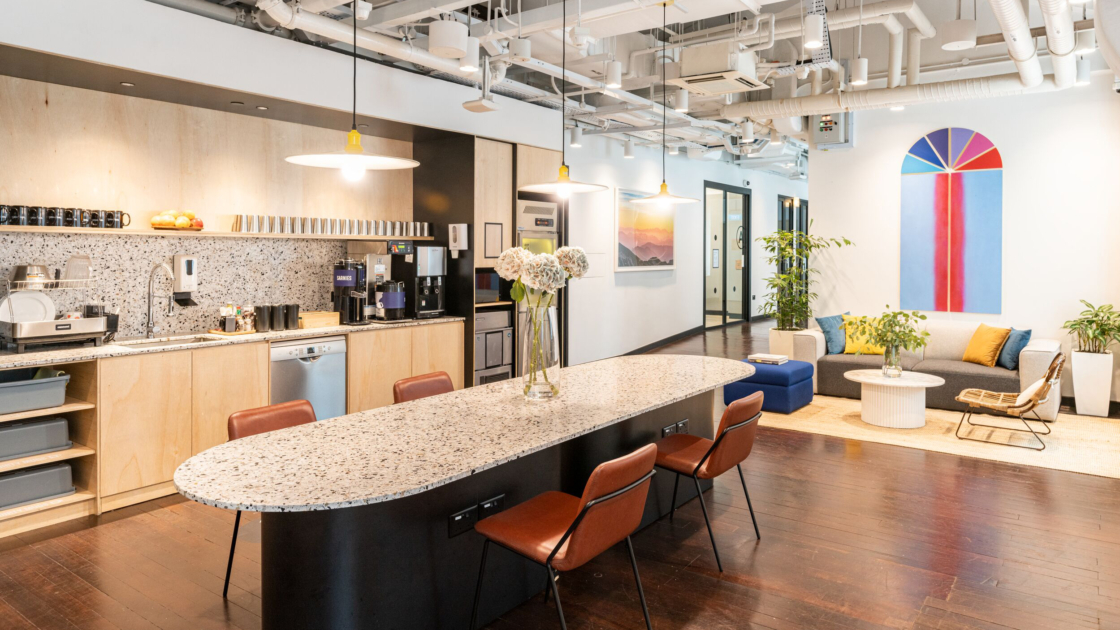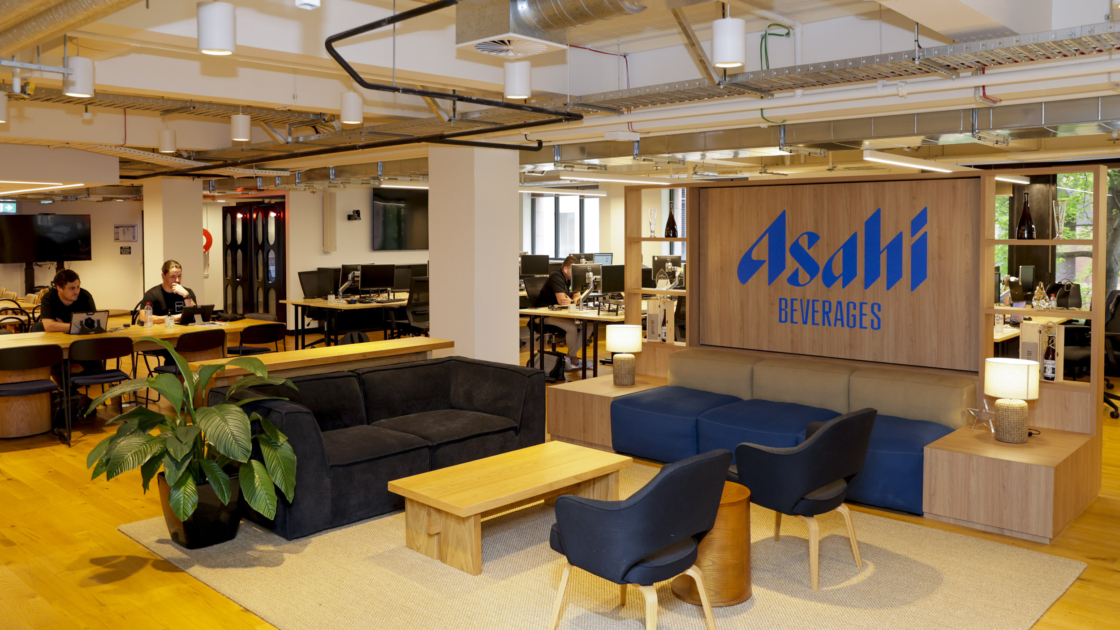WeWork’s 2019 Global Impact Report reveals how WeWork helps individuals and businesses thrive, energizes neighborhoods, and accelerates economic growth in 75 cities around the world. Here are some of our community’s stories.
In 2017, Krystyn Harrison left her career in management consulting and started Prosper, an interview- and career-coaching app. As a self-described “serial entrepreneur” (she had previously started two other businesses), Harrison’s desire to start things was strong.
“I wanted to build something,” she says. But her insecurity was holding her back. “I was struggling with self-doubt. Meanwhile, I thought everyone else around me was superconfident, when the reality was that everyone was equally as nervous.” She overcame it, eventually, launching Prosper two years later and never once looking back.
Harrison runs Prosper out of Toronto’s WeWork 1 University Ave, and if she ever has another crisis of confidence, she merely has to look around at her fellow members, many of whom are also female business owners with companies in stages similar to hers. The impact extends far beyond Toronto. Globally, 39 percent of all senior roles—executives, senior managers, managers, and sole proprietors—at WeWork member companies are held by women, according to WeWork’s 2019 Global Impact Report, compared with just 24 percent worldwide outside of WeWork.
“I feel like WeWork provides a safety net—you have a support system that helps you create your dream, whatever that is,” says Mabel Luna, CFO at beverage brand Kombrewcha and founder and adviser of boutique financial-services firm A Business Collective. “There’s a lot of need for community regardless of the size [of your business], regardless of what reach you have. People want to make an impact, and I think WeWork helps especially women to do that.”
Luna, like Harrison, has a background in corporate America: She worked as both an auditor and a manager of financial operations before launching A Business Collective in 2014, with the aim of redesigning the financial culture of startups.
In her years in more traditional office settings, Luna says she found a limit on the support and growth opportunities available to women. But the playing field is changing, and those barriers largely installed by traditional gatekeepers are beginning to come down.
“I know it sounds simple, but if women are listened to about what our needs are, men will start to understand that we think a little differently, but we bring a lot to the table,” says Luna, a member at Brooklyn’s WeWork 134 N 4th St.
This is especially pertinent in fundraising, where, as of 2018, just 9.65 percent of decision-makers at venture-capital firms are women—and where female-founded startups raise just 2.2 percent of venture-capital investments. When it came time for Harrison to begin building Prosper, she was realistic about the challenges she might face.
“There were a lot of ‘nos,’ a lot of rejection,” says Harrison. “I’m sure men deal with [that] at an investor table just as much as women. But I do believe that in fundraising, women struggle with confidence around something that may not be sound.”
Harrison says that in fundraising, the gender gap even extends into something as fundamental as revenue projection: Women have a tendency to understate their numbers, whereas men will more typically overstate them. But in the end, she says, some of the most profitable companies are led by women, given these more-conservative financial estimates, among other research-backed reasons.
The more women get comfortable at the investor table and in other deeply male-dominated industries—and share their knowledge and experience with other women—the more their collective confidence will grow. That’s been the experience of Twenty Twenty Studios founder and executive producer Sarah Gerber. She found strength, solidarity, and confidence in her community of family and friends.
When Gerber founded her company, which creates storytelling for purpose-driven brands, in 2010, she admits that she could have benefitted from a different kind of supportive network—the professional one that Luna encountered at WeWork. But Gerber—who also serves as the CEO and co-founder of gender-equality nonprofit Zero Gap, launched in 2017—understands, in retrospect, just how influential a career support system can be for female entrepreneurs getting their businesses off the ground.
“That was definitely a very formative process for me,” says Gerber, now a member at WeWork 1111 Broadway in Oakland, California, of growing her own professional network, “and really build the foundation of not just my work but my work identity.”
Now nearly 10 years into her entrepreneurial journey, Gerber is able to rely on her own community of female business owners. This includes her Zero Gap co-founder, Mira Veda, who is a fellow WeWork member at the same location and to whom she was introduced by a WeWork community manager. Gerber is intent on passing along those relationships, and her mentorship, to her fellow female business leaders.
“Those relationships have been so valuable, not just for connections, but general encouragement,” says Gerber. “It’s particularly important for founders and people with smaller teams because it can be so lonely. And it doesn’t have to be.”
WeWork offers companies of all sizes space solutions that help solve their biggest business challenges.







